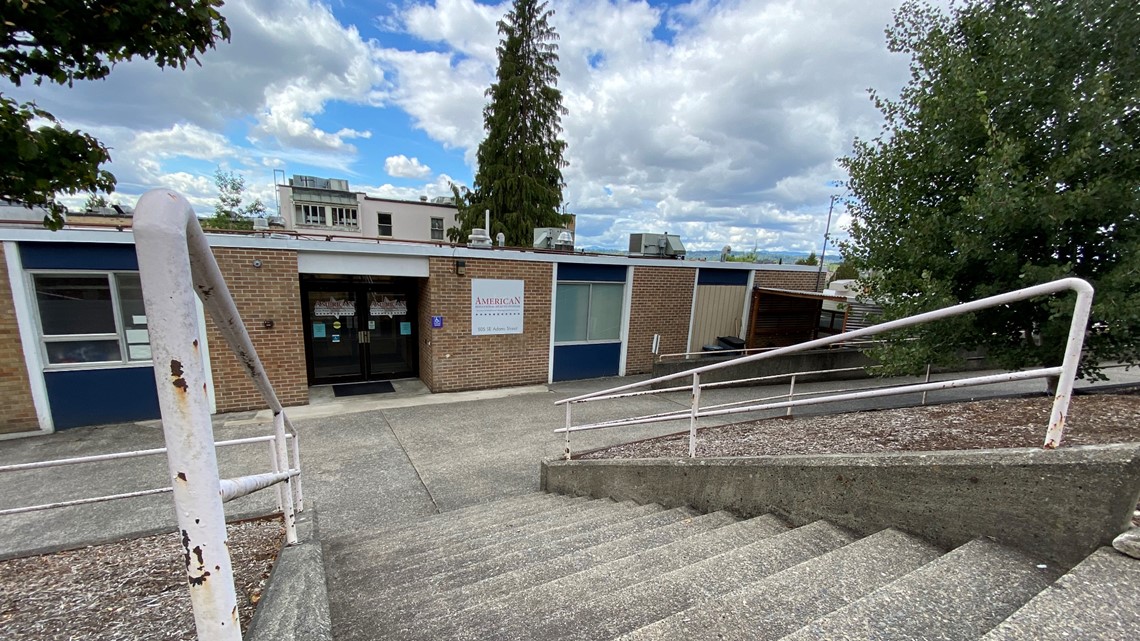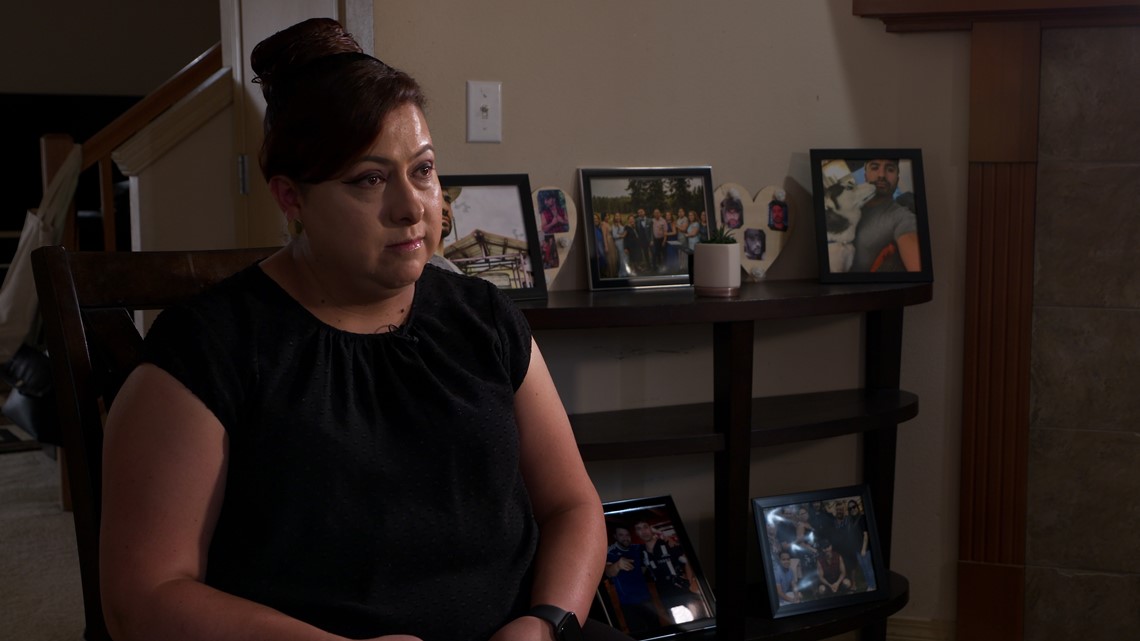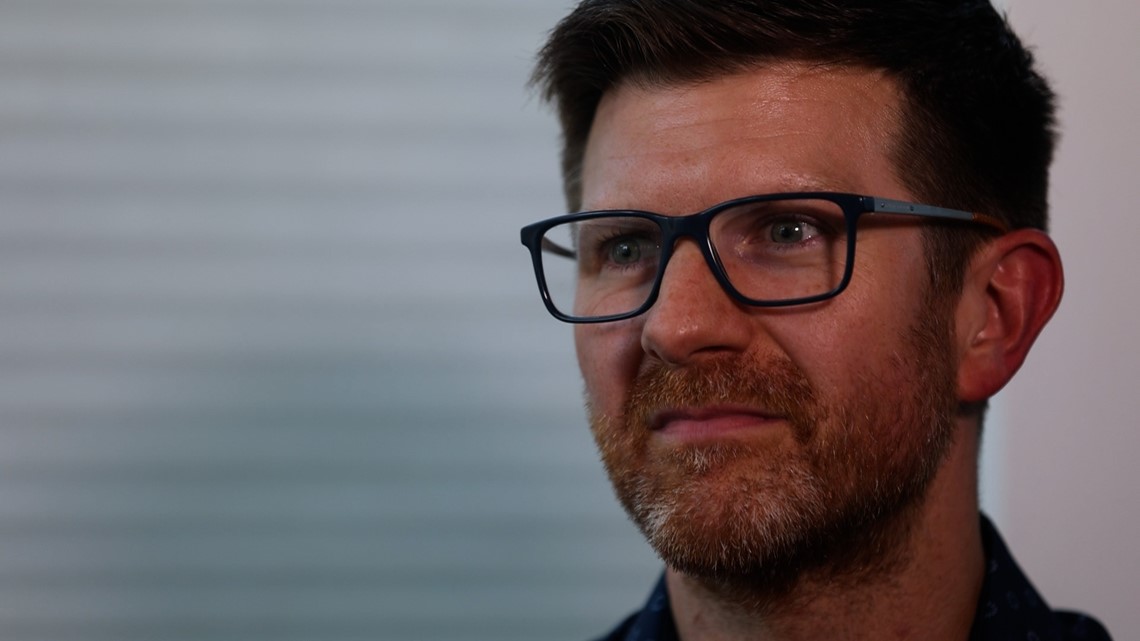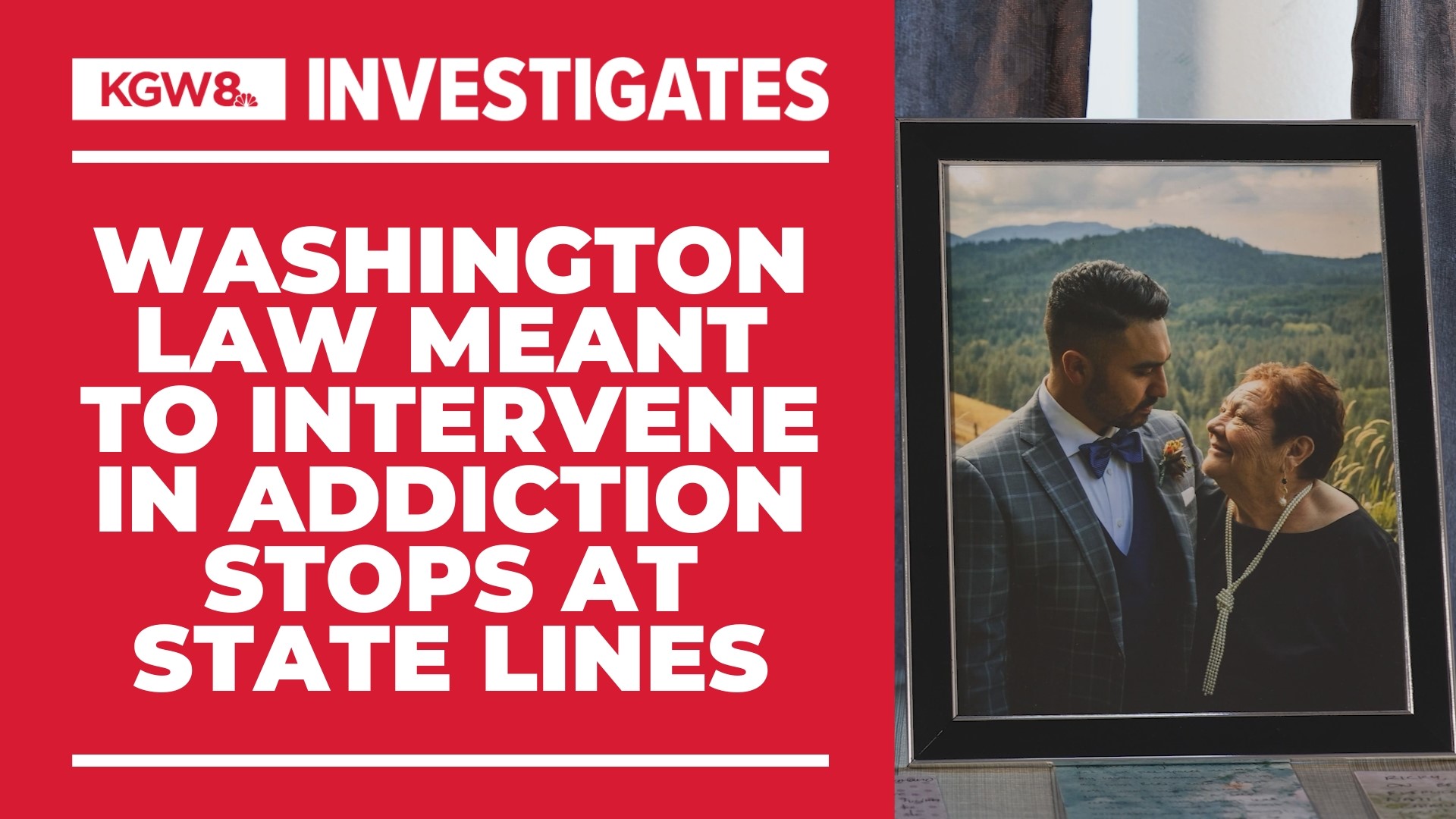PORTLAND, Ore. — In May, Ricky Klausmeyer-Garcia crossed a bridge from Vancouver, Wash. into Portland.
Ricky’s name is well-known across Washington. A recovery advocate, he transformed his personal story of addiction into a new state law, "Ricky’s Law," which passed in 2016 and took effect two years later. The law expanded involuntary treatment to people with substance use disorders.
Treatment, Ricky said, had saved his life, and other people should have that chance — even if they’re reluctant to accept it at first.
Ricky had been sober from his alcohol addiction for years, but this 2023 trip to Portland was different.
He was running from his own law.
By crossing the border into Oregon, Ricky found a refuge away from forced treatment as he battled addiction once again.
“That was a sign that his disease was active and he was scared,” Ricky’s husband Kelsey Klausmeyer told KGW.
While Ricky could’ve been compelled into “secure withdrawal management” and a substance use treatment program in Washington state, Oregon has no such system. Instead, Oregon limits involuntary treatment only to people with severe mental illness.
Someone with a substance use disorder in Oregon can be held briefly for evaluation, but unless they agree to treatment, they’re released.
In understanding there are serious issues with untreated addiction in our Pacific Northwest community, Ricky’s story highlights a key contrast between options in Washington and Oregon: access to involuntary treatment for substance use.
Ricky’s Law
In 2016, state senators and representatives in Washington overwhelmingly passed House Bill 1713, expanding involuntary treatment to people with serious addictions and substance use disorders.
Over the ensuing years, Washington worked out a process similar to that for civil commitment and severe mental illness.
It begins when a loved one, first responder, health care worker or other community member calls a county’s crisis services line to share information about a person with a severe substance use disorder. A “Designated Crisis Responder” (DCR) then comes to investigate the crisis and individual’s case.
If the DCR believes the person meets statewide criteria for involuntary treatment due to a substance use disorder, the individual is detained. That person is then transferred to a secure withdrawal management facility for up to 17 days.
Washington state standards require a person to be a serious threat to themselves or others, or be gravely disabled due to a substance use disorder, in order to be detained for involuntary treatment. DCRs often present voluntary treatment options or other safety plans upon meeting an individual.
In short, Ricky’s Law is designed to intervene and prevent serious harm in severe cases of addiction in Washington.
“When the law was enacted, it kind of opened my eyes, 'Oh yeah, there is something that we can do for these people,'” said Natalie Olson.
Olson works as a court liaison for American Behavioral Health Systems – Chehalis, one of the handful of secure withdrawal management facilities in Washington. She effectively acts as an interpreter between the court system and the clinical staff of ABHS Chehalis, helping to manage patients.


When KGW visited ABHS Chehalis, 14 people were receiving involuntary treatment services.
“I'm going to provide them care and concern and stabilization and recommendations for the future, and I'm going to hopefully provide hope that they can get better,” said Olson.
Olson described the process, ranging from medically-managed detox and preventing physical harm, to mental health treatment, counseling, therapy, housing services, finding other inpatient or outpatient treatment, transportation options and other resources.
She said the staff is motivated when a patient’s ambivalence to treatment changes into a desire for future care with a goal to overcome addiction.
“I wish more people would be aware that involuntary (treatment) is available and it’s not a punishment,” Olson said. “We are civil detention and we’re here for helping people, that’s all our goal here.”
Washington State Health Care Authority data shows 961 people received involuntary treatment for substance use between October 2020 and September 2021. That dropped to 640 people the next year.
Lauren Davis, Ricky Klausmeyer-Garcia’s best friend turned state lawmaker who helped pass Ricky’s Law, said the law has been incredibly effective but not enough people are using it.
“Unfortunately, we are seeing statewide mass under-utilization of this incredibly important lifesaving tool and that has been really frustrating,” Davis said.
For example, hospitals might not call DCRs to investigate substance use cases if they need to clear bed space. Other healthcare leaders or members of the public might not know it’s an option.
The HCA data shows most people leave forced treatment facilities after agreeing to continued voluntary treatment, but it’s difficult to measure what happens next.
At ABHS Chehalis, Olson reported high rates of initial retention in continued treatment options.
“We've noticed that within at least the first month of discharge from our facility, they're still in services, I would say at about 90 percent,” she said.
However, it remains difficult to quantify the effectiveness of involuntary treatment for substance use, with researchers often pointing to a lack of empirical data on the subject, not to mention ethical concerns about the use of forced care in any capacity.
The ultimate reality is that for many people facing addiction, recovery isn’t always a straight path.
Ricky’s story
When Ricky arrived in Oregon around Mother’s Day this year, he was outside of jurisdiction for involuntary treatment — the type of treatment that, for years, he had endorsed as being necessary in severe cases of addiction.
Ricky’s husband, Kelsey Klausmeyer, and his sister, Angelica Garcia, said they knew that Ricky wouldn’t get the help he needed in Oregon.
“I wanted to go get him and bring him back to Washington for him to get help, because I wanted him to keep fighting,” Garcia said.


Klausmeyer recalled his conversation with doctors at the Portland-area hospital where Ricky was being evaluated.
“At one point I was talking to providers at that hospital, begging them to not let him go, and they basically said, 'Look, we wish we could help you, but we can only hold for a psychiatric reason for a very limited period of time,'” Klausmeyer said.
Ricky was released, and he did return to Washington days later.
"He came back, he wanted to get treatment and then ... he died," Garcia said.
Ricky Klausmeyer-Garcia died at a substance use treatment center.
Family members have not publicly released details about Ricky’s cause of death.
“I wonder what could have happened if, you know, if I could have gotten him help in Oregon,” Garcia said.
Klausmeyer said he also thinks about what could've been.
“Had he been able to get some safety there in that hospital … maybe he would still be here,” he said.
Ricky’s family and friends mourned their loss and celebrated Ricky’s impact as an addiction recovery leader at a funeral in June.
“I miss him every day, I miss him every moment,” Klausmeyer said. “I do believe that (Ricky’s Law) saved his life and gave us a lot of time together."


Ricky, a son of Mexican immigrants, was the youngest of nine siblings.
“And he was the most lovable one of all of us, he was always pouring and giving love to everybody,” Garcia said. “He always used to say… 'I want to be able to change the system so more people can get help like I did.'”
Forced treatment still requires a high legal standard. States like Washington, as a whole, value personal liberties — and involuntary commitment includes stripping the rights of an individual.
The ethical considerations of this method are well-documented. Still, Klausmeyer said involuntary treatment needs to be an option for people in dire circumstances.
“Sure, it’s not the first-line thing to do for individuals with this disease, but it is crucial for the people who do have a severe condition — this is what’s going to save their life when nothing else does,” Klausmeyer said. “It’s really the most compassionate thing to help someone when they’re suffering so severely, and I got to witness that firsthand with Ricky."
Crossing the line
So, why doesn’t Oregon have something similar to Ricky’s Law? It’s possible to force someone into treatment for substance use disorder or alcoholism in 37 states, according to a National Alliance for Model State Drug Laws study. Oregon lawmakers have proposed similar legislation in recent years, but it hasn’t advanced out of committee.
Angelica Garcia said she would advocate for a "Ricky’s Law" equivalent being introduced and used in Oregon.
“Why? Because so many lives can be saved. There are a lot of people who are hurting, hungry for help, desperate for help,” Garcia said.
Rep. Davis said that with Ricky’s death, knowing he fled to Oregon to avoid involuntary treatment, she believes the time is now for Oregon lawmakers to pass a similar law — and Oregon can do it better.
“Lessons can be learned from Washington’s missteps here around implementation, and (Oregon) would not have to make the same mistakes,” Davis said. “For thousands of people who’ve received care under Ricky’s Law, it’s life-changing and life-saving, in some cases, for them and their families.”
Klausmeyer said it would honor his late husband, who he said wanted nothing more than to make change and help as many people as possible.
“That would mean that people in Oregon struggling with this disease have a chance, and that there’s hope for people who have fallen through the cracks of the system and are likely to lose their life to this disease,” he said.

